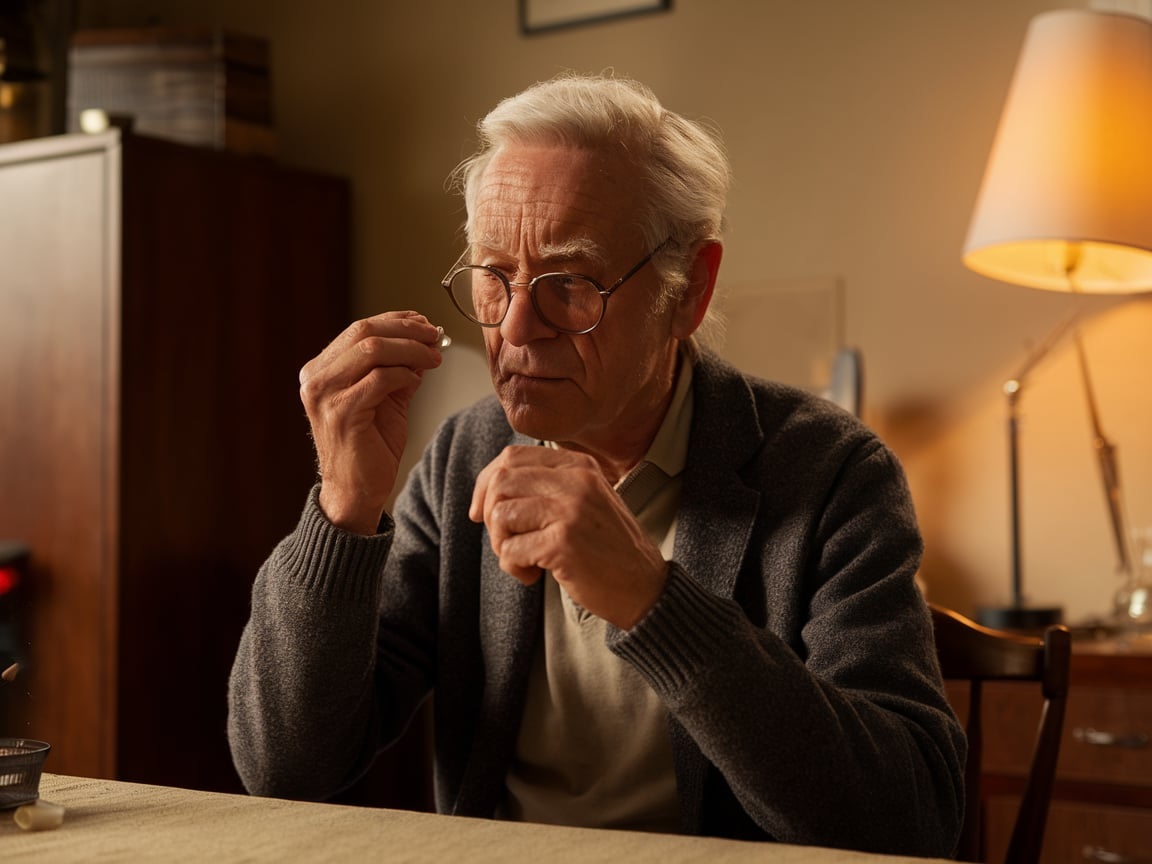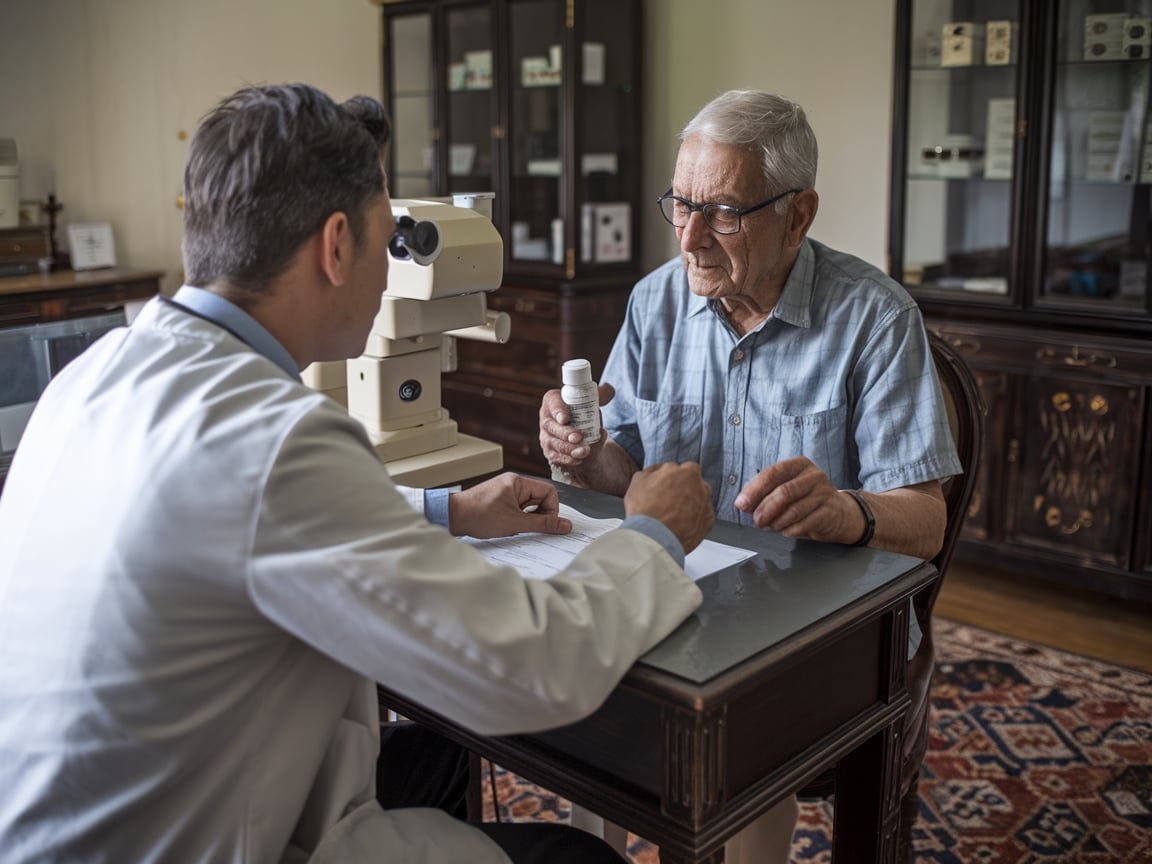Can Seniors Wear Contact Lenses?
We don’t have to be youngsters to benefit from contacts. Age no longer deprives you of the convenience and visual clarity that are offered by these thin, clear plastic disks, thanks to the modern advancements in eye care. Now let’s see how contact lenses can be integrated into the lives of senior citizens.
New Perspective on Contact Lenses After 60
Typically, when we think of contact lenses, we picture a young professional or college student. The good news, though: you don’t have to be young to wear contact lenses. The freedom and convenience they provide are also for the elderly. Moreover, with improvements in eye care, age is no longer an obstacle.
Addressing Common Concerns

Isn't Dry Eye a Deal-Breaker?
Dry eyes are annoying, particularly in our older years. But dry eyes can be alleviated by certain lenses and lens preparations. Nine out of ten can easily wear contact lenses if they want to, says Prevent Blindness, an eye-health and safety volunteer group.
“Not everyone who needs glasses wants to wear contacts, but nine out of 10 people who want to wear them can wear contacts.” - Prevent Blindness
What About Age-Related Vision Changes?
Presbyopia, whereby the eye loses its capacity to focus on nearby objects, usually occurs in individuals who are around 40 years old and gradually becomes more noticeable. This can make small print difficult to read. But multifocal contact lenses can solve that problem, and provide clear vision at many distances.
The Future of Contact Lenses: Fit for Aging Eyes
Remember when contact lenses were a one-size-fits-all thing? Those days are behind us. We now have contact lenses for the elderly that address dry eyes and presbyopia.
Multifocal Lenses
Multifocal lenses correct presbyopia, by putting multiple prescriptions inside the same lens, and giving you clear vision at different distances.
Daily Disposables
Daily disposable lenses are a lifesaver for those who worry about cleanliness and care. They also eliminate cleaning products and prevent eye infections.
Lenses for Dry Eyes
Lenses have changed with improved lens materials to provide better moisture retention. This makes them suitable for people with dry eyes.
Expert Insights: What the Professionals Say
Ophthalmologists say age isn’t a reason to avoid wearing contact lenses. Even older people can wear contacts as long as they are fitted correctly and examined regularly. It is best to talk to an eye doctor to see what kind of lens fits your needs and lifestyle.
The American Optometric Association recommends that anyone over the age of 60 should get a comprehensive eye exam every year. Routine exams are a great way to identify eye disease early, for improved vision and health.
Tips for Seniors Who Are Considering Contact Lenses
Starting to wear contact lenses when you’re older can be both challenging and gratifying. To make the transition easier and keep your eyes as healthy as possible, consider these practical recommendations:

Consultation is Key
You should start with an eye exam performed by your optometrist or eye doctor. This appointment will assess your vision and determine the best contact lenses for your lifestyle and eye condition. Your optometrist can talk you through all the different lenses so that you can choose something comfortable and beneficial.
Prioritize Hygiene
Taking care of contact lenses demands rigorous hygiene. Wash your hands with soap and water immediately before touching your lenses so you aren’t transferring bacteria that can cause infections. Also make sure you clean and store your lenses according to their instructions, using the right chemicals to keep them disinfected and safe to use.
Stay Hydrated
Your eyes need to stay moist, since tear production can decline with age. You can use rewetting drops prescribed by your eye doctor to help reduce dryness and remain comfortable during the day. Furthermore, keeping your body hydrated with lots of water is also great for the eyes and helps prevent dryness.
Regular Check-ups
You should continue to visit your eye doctor regularly to keep track of your eye health and to keep your contact lens prescription up-to-date. These visits can help prevent any issues early on and will give you a chance to talk about any discomfort or visual shifts to make sure you get the most out of wearing contact lenses over time.
FAQs
Can seniors with dry eyes wear contact lenses?
Yes, there are contact lenses specifically designed to address dry eye issues. Some of them even provide comfort for extended wear.
Are contact lenses safe for seniors?
Yes. Contact lenses can be safely used for seniors with good hygiene and regular eye exams. Make sure to follow the eye doctor’s prescription.
What types of contact lenses are best for age-related vision changes?
Multifocal and bifocal contact lenses treat presbyopia. It is targeted to age-related changes in vision.
Is it difficult to adapt to contact lenses later in life?
There is some adjustment, but many seniors become quite comfortable wearing contact lenses with the proper guidance and care.
How often should seniors have their eyes checked when using contact lenses?
Eye exams are advised at least once a year or as recommended by your eye doctor.
As the Saying Goes: Age is Just a Number
You might be afraid to switch to contact lenses when you’re older, but with the right advice and products for older eyes, it’s not impossible. Having the ability to look at your world without glasses can simplify your everyday activities, increase your self-esteem and give you a new outlook on life.
Age doesn’t have to stand in the way of using contact lenses. And today, thanks to technological innovation and a wide variety of models that cater to various requirements, it is easy for senior citizens to enjoy the clarity and simplicity of contacts. You should always consult an eye care professional to learn more about the best solution based on your vision needs.
Your eyes are unique, and what works for one person may not work for another. Never disregard professional advice from your optometrist.
 Save yourself from getting into rush hours and buy your contacts online.
Save yourself from getting into rush hours and buy your contacts online.






